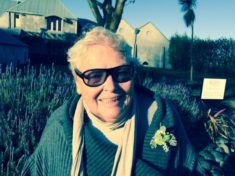Jane Marcus Feminist University Breakout Workshops
(during day-of Registration 9:30-10am, registrants will chose one of the following four breakout session workshops to attend):
Modernist Women Writers and Activists
Led by Nancy Berke, LaGuardia College
Strikes by Mexican cotton pickers in California and marble workers in Vermont, lynchings in the South, the Scottsboro Case, the wrongful imprisonment of labor organizers, white lung disease among miners in West Virginia: modernist women writers not only wrote about these subjects, but also participated in the strike committees and citizens groups that made these acts of social injustice take center stage during the Great Depression. In this session, inspired by Jane Marcus’s insistence that we understand the deep connections between modernist women’s art and their roles as public intellectuals, we will examine and discuss some of the art and protest these modernist women made out of such historic moments.
The Spanish Civil War
Led by Margaret Carson, Borough of Manhattan Community College
“The Spanish Civil War produced an avalanche of artistic response, in painting and propaganda, powerful posters never surpassed in artistic power since the Russian Revolution, poetry, fiction, journalism, and even music…” (Jane Marcus, introduction to Virginia Woolf’s Three Guineas, 2006).
Jane Marcus’s critical engagement with the Spanish Civil War and with the wide range of literary, artistic, and activist expressions it gave rise to—especially by marginalized or forgotten voices, most often women’s—helped shape a new generation of scholar/activists whose archival investigations and critical writings have opened up new or revised readings of Virginia Woolf, Nancy Cunard, Langston Hughes, Muriel Rukeyser, Gamel Woolsey, Josephine Herbst, Sylvia Townsend Warner and many others who went to Spain or otherwise supported the Republic. This break-out session will be devoted to sharing the scholarly work on the Spanish Civil War that was guided and encouraged by Jane, and to reflecting on her inspiring mentorship.
Feminist Digital Pedagogy
Led by Amanda Golden, New York Institute of Technology
Inspired by Jane Marcus’s groundbreaking work, participants in this breakout session will discuss feminist approaches to teaching literature, history, and culture using digital tools. After considering recent examples, from Smith College’s MOOC on the Psychology of Political Activism: Women Changing the World to Margaret Konkol’s article in Hybrid Pedagogy, “Public Archives, New Knowledge: Moving Beyond the Digital Humanities/Digital Pedagogy Distinction,” we will brainstorm new ways to teach students to formulate complex arguments in digital projects—such as interactive maps, applications (apps), e-books, podcasts, and videos—and strategies for incorporating tools, activities, and projects in existing courses. Participants of all levels, from the curious to the experienced, are encouraged to join this session.
Jane Marcus and New Historicism
Led by H. Aram Veeser, City College
This will be an interactive session to discuss Jane’s mentoring of historical literary scholars and editors. I was fortunate to be one of those mentees, though I had never met her and knew her only through letters and long distance phone calls to Salina, Kansas. I will make available to any who ask for it the essay Jane contributed to The New Historicism, a prime example of the artistry and unexpectedness of her method. Jane fostered the English Department move away from interpreting literary texts exclusively or even primarily. She used archival digging in order to unveil suppressed historical struggles. Her chosen objects of investigation were not only texts, literary and otherwise, but also objects like hobble skirts, force-feeding tubes, African bracelets, and Suffragette posters. Her fierce exposure of buried pasts helped install the twenty-five-year reign of critique, just as her studies of the performing of gender set the stage for Gender Trouble and Epistemology of the Closet. Her brilliant exploration of female fetishism established her as an originary figure in cultural studies.
All are welcome and encouraged to bring stories. It would be especially good, valuable, and exciting to hear participants’ recollections of Jane’s guiding insights as to your own selection of topics and objects. Didn’t she have very good aim? Time permitting, we can also imagine how Jane would respond to the forceful attack on symptomatic reading and the hermeneutics of suspicion—the foundations of “critique,” the project with which Jane is closely identified. In short, we can consider how much Jane treated her objects of study as accomplices rather than as patients.
Anyone wishing a PDF of Jane’s essay for The New Historicism, please email me at [email protected]
